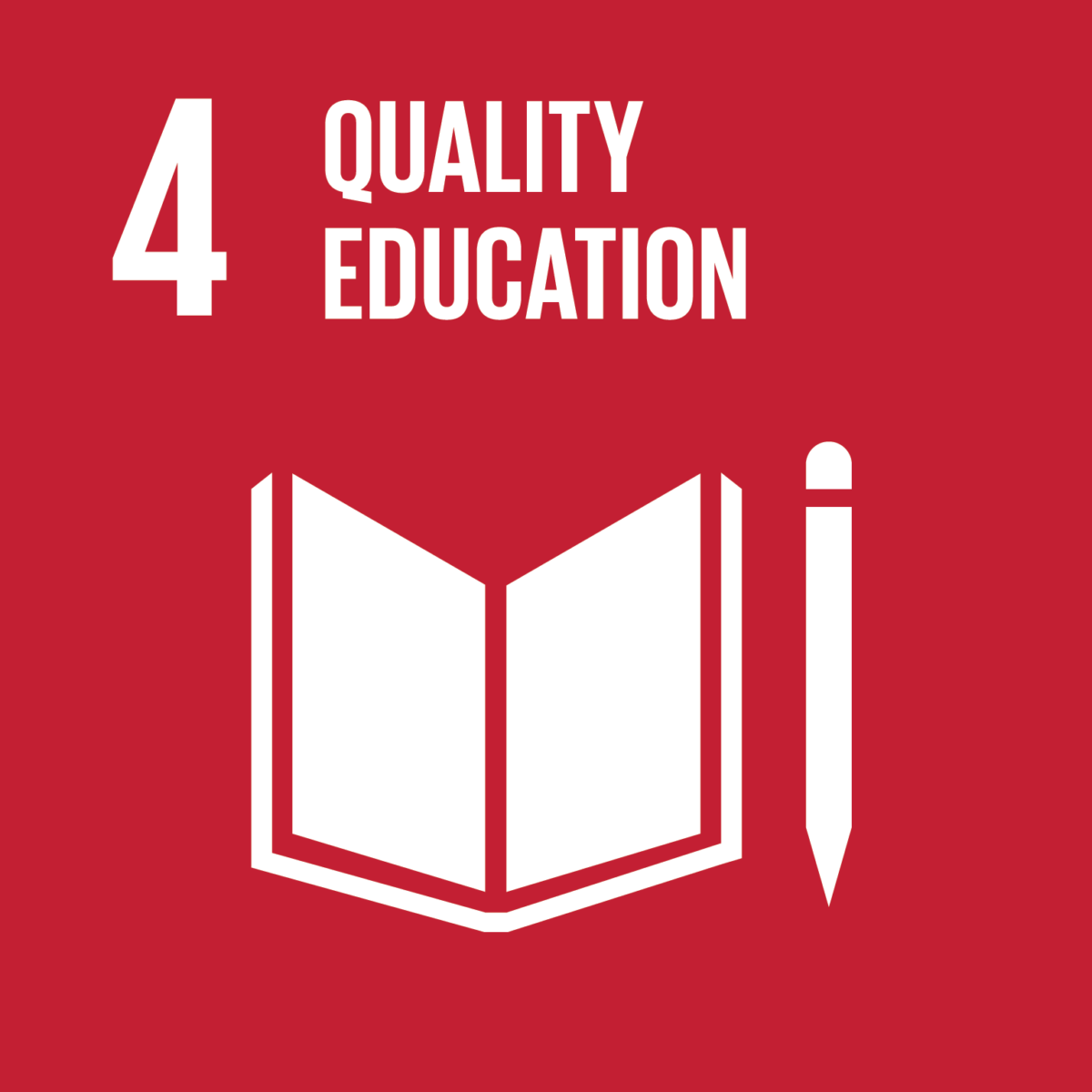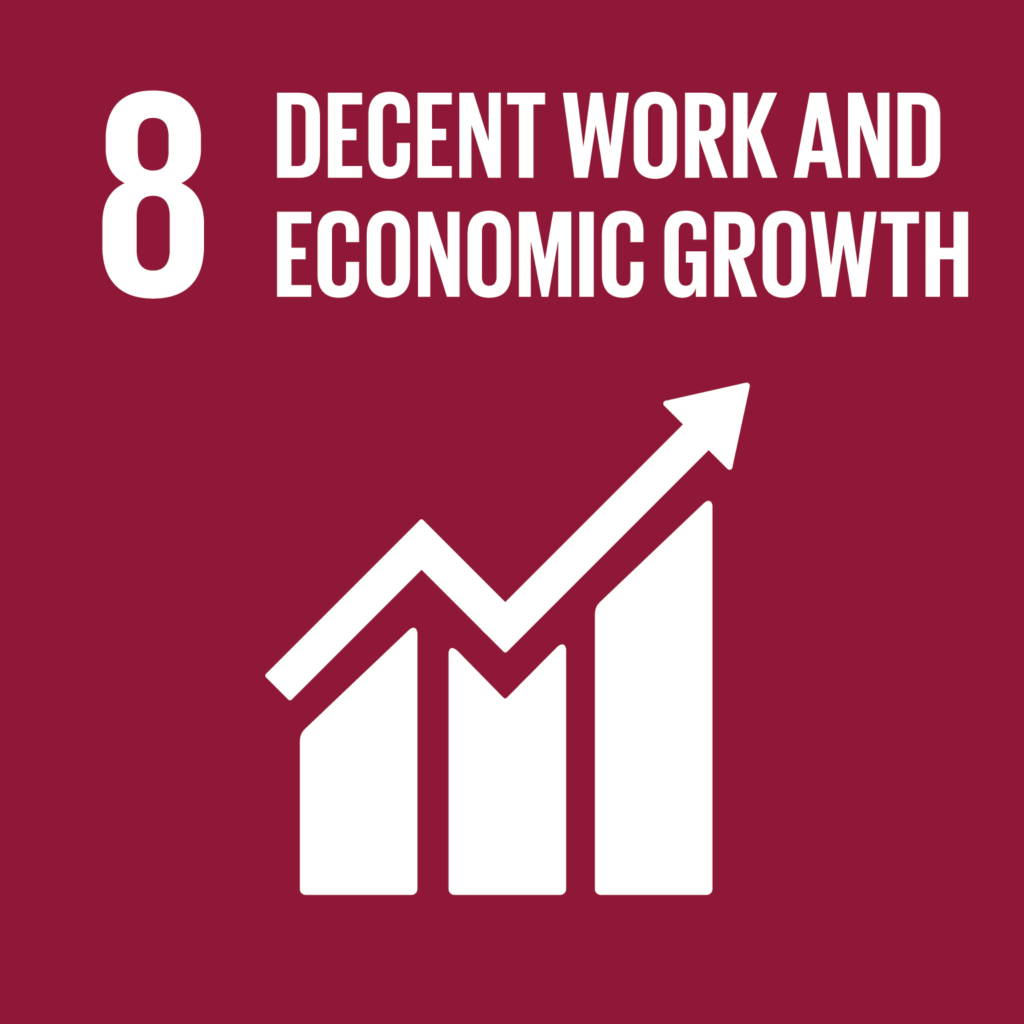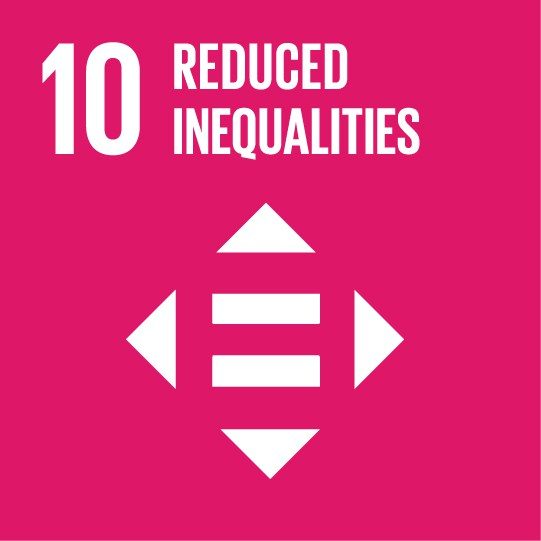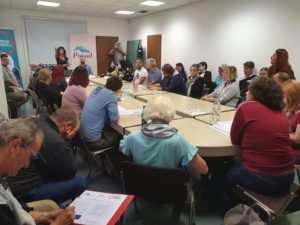 Introduction:
Integration in globalization is a small-scale framework that aimed to:
1. Activate the role of end users of migration and integration programs in the evaluation of these programs,
2. Enhance cultural ethnography and intercultural sensitivity in research design on integration and migration policies and
3. Create alternative educational and communication tools for intercultural trainers.
The following recommendations are coming from people who are holding refugee status, migrants and civil society representatives in Slovenia:
Recommendation on asylum seeking policies:
• Redefining the concept of asylum by easing the requested proofs for asylum to include person testimony and widen the proofs for asylum from similar events that took place in the fled country.
• Follow up with cases where asylum was declined and people were deported. To learn from cases where people were endangered and-or threatened after their deportation.
• Include poverty as a risk factor that is life threatening and therefore eligible to be considered as a reason for asylum
• Gendering the asylum process in connection to gender roles and its based violence in the fled country.
• Minimizing or abolishing the detention period for people who were rejected asylum
• Shortening the period that asylum seekers need to wait until they get a work permit before they are guaranteed international protection or refugee status.
• Making more flexible rules regarding family reunification to be tailor-made to the individuality of each case. Redefining the concept of family from an intercultural point of view and the concept of adulthood and childhood to be sensible to different realities.
Recommendations for integration programs:
• Encouragement of social incentives from social recognition of talents, skills and contributions of refugees and migrants
• Self-assessment tools for knowledge and skills recognition instead of formal recognition of certificates. For example, the youth-pass for self-learning assessment implemented in Erasmus plus youth programs.
• Creating social events for housing where refugees can get to know house owners and expand their networks to search for houses.
• Expanding the ethnic social networks of migrants when designing the integration program. Not to accept only refugees but also to accept migrants regardless of their legal status in the integration program.
• Provide sense of ownership to refugees in their housing process by providing translation and yet make people search for their houses by their own.
• Provide access for special buildings for people who cannot find a house from the refugee community. For example, people who are subjected to discrimination that affects their chances to find housing in Slovenia because of their legal status.
• Inter-religious educational programs to combat Muslim Phobia specially against women who choose to wear headscarf.
• Inter-religious educational programs to combat xenophobia not only toward migrants, but also fear of integration with the hosting society that can also exist in the migrant community.
• Avoid ethnic segregation in occupations, as this can lead to institutionalized racism.
• Redesigning the curriculum in secondary schools to be tailor-made according to the different needs of different students. More engaging hours and tailor designed courses for students from migrant backgrounds to catch up faster with native ones. This is in order to avoid dropout of migrant students and children.
• In implementation of social services not to consider automatically that men are the head of the families unless it is agreed on by all the family members.
• Achieving gender equal representation in certain occupations connected to translation, social work and cultural mediation.
• Assuring ethnic and gender equality in public employment in positions responsible for the evaluation and the implementation of asylum and integration programs and policy design.
• Creating integration programs that combine people with less opportunities like people not in Education, Employment, or Training for long with people who are migrants including but not only refugees and asylum seekers.
• Creating integration programs that combine people who are subjected to various prejudices and hate speech narratives like unemployed people subjected to social stigma, people who are subjected to homophobia and people who are subjected to Muslim-phobia or xenophobia
Introduction:
Integration in globalization is a small-scale framework that aimed to:
1. Activate the role of end users of migration and integration programs in the evaluation of these programs,
2. Enhance cultural ethnography and intercultural sensitivity in research design on integration and migration policies and
3. Create alternative educational and communication tools for intercultural trainers.
The following recommendations are coming from people who are holding refugee status, migrants and civil society representatives in Slovenia:
Recommendation on asylum seeking policies:
• Redefining the concept of asylum by easing the requested proofs for asylum to include person testimony and widen the proofs for asylum from similar events that took place in the fled country.
• Follow up with cases where asylum was declined and people were deported. To learn from cases where people were endangered and-or threatened after their deportation.
• Include poverty as a risk factor that is life threatening and therefore eligible to be considered as a reason for asylum
• Gendering the asylum process in connection to gender roles and its based violence in the fled country.
• Minimizing or abolishing the detention period for people who were rejected asylum
• Shortening the period that asylum seekers need to wait until they get a work permit before they are guaranteed international protection or refugee status.
• Making more flexible rules regarding family reunification to be tailor-made to the individuality of each case. Redefining the concept of family from an intercultural point of view and the concept of adulthood and childhood to be sensible to different realities.
Recommendations for integration programs:
• Encouragement of social incentives from social recognition of talents, skills and contributions of refugees and migrants
• Self-assessment tools for knowledge and skills recognition instead of formal recognition of certificates. For example, the youth-pass for self-learning assessment implemented in Erasmus plus youth programs.
• Creating social events for housing where refugees can get to know house owners and expand their networks to search for houses.
• Expanding the ethnic social networks of migrants when designing the integration program. Not to accept only refugees but also to accept migrants regardless of their legal status in the integration program.
• Provide sense of ownership to refugees in their housing process by providing translation and yet make people search for their houses by their own.
• Provide access for special buildings for people who cannot find a house from the refugee community. For example, people who are subjected to discrimination that affects their chances to find housing in Slovenia because of their legal status.
• Inter-religious educational programs to combat Muslim Phobia specially against women who choose to wear headscarf.
• Inter-religious educational programs to combat xenophobia not only toward migrants, but also fear of integration with the hosting society that can also exist in the migrant community.
• Avoid ethnic segregation in occupations, as this can lead to institutionalized racism.
• Redesigning the curriculum in secondary schools to be tailor-made according to the different needs of different students. More engaging hours and tailor designed courses for students from migrant backgrounds to catch up faster with native ones. This is in order to avoid dropout of migrant students and children.
• In implementation of social services not to consider automatically that men are the head of the families unless it is agreed on by all the family members.
• Achieving gender equal representation in certain occupations connected to translation, social work and cultural mediation.
• Assuring ethnic and gender equality in public employment in positions responsible for the evaluation and the implementation of asylum and integration programs and policy design.
• Creating integration programs that combine people with less opportunities like people not in Education, Employment, or Training for long with people who are migrants including but not only refugees and asylum seekers.
• Creating integration programs that combine people who are subjected to various prejudices and hate speech narratives like unemployed people subjected to social stigma, people who are subjected to homophobia and people who are subjected to Muslim-phobia or xenophobia
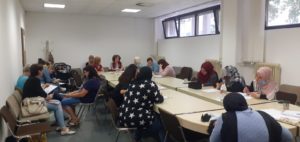 المقدمة :
الاندماج في العولمة هو إطار صغير الحجم يهدف إلى :
تفعيل دور المستخدمين النهائيين لبرامج الهجرة والتكامل في تقييم هذه البرامج .
تعزيز الإثنوغرافيا الثقافية والحساسية بين الثقافات في تصميم البحوث حول سياسات التكامل والهجرة و
إنشاء أدوات تعليمية وتواصلية بديلة للمدربين متعددي الثقافات .
تأتي التوصيات التالية من الأشخاص الذين يحملون صفة اللاجئ والمهاجرين وممثلي المجتمع المدني في سلوفينيا :
توصية بشأن سياسات طلب اللجوء :
إعادة تعريف مفهوم اللجوء من خلال تسهيل البراهين المطلوبة للجوء لتشمل شهادة الشخص وتوسيع البراهين للحصول على اللجوء
من الأحداث المماثلة التي وقعت في البلد المغادر منها .
متابعة الحالات التي تم فيها رفض اللجوء وترحيل الأشخاص. التعلم من الحالات التي تعرض فيها الأشخاص للخطر أو التهديد بعد
ترحيلهم .
أدراج الفقر كعامل خطر يهدد الحياة وبالتالي فهو مؤهل ليتم اعتباره سببًا للجوء
تفعيل دور النوع المجتمعي أو الجندر عملية اللجوء فيما يتعلق بأدوار الجنسين والعنف القائم على أساس النوع في البلد الذي تم الفرار
منه .
تقليص أو إلغاء فترة احتجاز الأشخاص الذين رُفضت طلبات لجوئهم
تقصير الفترة التي يجب أن ينتظرها طالبو اللجوء حتى يحصلوا على تصريح عمل قبل أن يحصلوا على الحماية الدولية أو صفة
اللاجئ .
وضع قواعد أكثر مرونة فيما يتعلق بجمع شمل الأسرة بحيث تتناسب مع خصوصية كل حالة. إعادة تعريف مفهوم الأسرة من وجهة
نظر متعددة الثقافات ومفهوم الرشد والطفولة ليكون حساسًا للوقائع المختلفة .
توصيات لبرامج الدمج :
تشجيع الحوافز الاجتماعية من الاعتراف الاجتماعي بمواهب ومهارات ومساهمات اللاجئين والمهاجرين
أدوات التقييم الذاتي للاعتراف بالمعرفة والمهارات بدلاً من الاعتراف الرسمي بالشهادات. على سبيل المثال ، شهادة تقييم التعلم الذاتي
المنفذة في برامج إيراسموس للعمل الشبابي .
إقامة أحداث اجتماعية للإسكان حيث يمكن للاجئين التعرف على أصحاب المنازل وتوسيع شبكاتهم للبحث عن منازل .
توسيع الشبكات الاجتماعية العرقية للمهاجرين عند تصميم برنامج الاندماج. عدم قبول اللاجئين فقط ولكن أيضًا لقبول المهاجرين
بغض النظر عن وضعهم القانوني في برنامج الاندماج .
توفير الشعور بالملكية للاجئين في عملية إسكانهم من خلال توفير الترجمة وجميع الموارد التي تمكن الناس من البحث عن منازلهم
بأنفسهم .
توفير الوصول إلى المباني الخاصة للأشخاص الذين لا يستطيعون العثور على منزل من مجتمع اللاجئين. على سبيل المثال ، الأشخاص
الذين يتعرضون للتمييز الذي يؤثر على فرصهم في العثور على سكن في سلوفينيا بسبب وضعهم القانوني. على سبيل المثال ، التمييز
عن طريق زيادة رسوم الايجار للاجئين مع إعطاء أسعار أقل للوافدين أو المواطنين .
برامج تعليمية بين الأديان لمكافحة رهاب المسلمين وخاصة ضد النساء اللواتي يخترن ارتداء الحجاب .
البرامج التعليمية بين الأديان لمكافحة كره الأجانب ليس فقط تجاه المهاجرين ، ولكن أيضًا الخوف من الاندماج في المجتمع المضيف
الذي يمكن أن يوجد أيضًا في مجتمع المهاجرين .
أنظمة أكثر شفافية لمكافحة التمييز على أساس الجنس والدين ضد النساء المحجبات. على سبيل المثال ، في فرص العمل والأماكن
العامة مثل حمامات السباحة العامة .
تجنب الفصل العرقي في المهن ، لأن هذا يمكن أن يؤدي إلى العنصرية المؤسسية .
تجنب الفصل بين الجنسين في المهن في برامج الدمج من خلال التدريب المهني على سبييل الزام النساء تعلم مهن محددة مثل الطبخ
التنظيف او التطريز .
إعادة تصميم المناهج الدراسية في المدارس الثانوية بحيث تتناسب مع الاحتياجات المختلفة للطلاب. ساعات أكثر ودورات مصممة
خصيصًا للطلاب من خلفيات مهاجرة للحاق بشكل أسرع بالطلاب الأصليين. وذلك لتجنب خروج الطلاب والأطفال المهاجر ين من
النظام التعليمي .
تنفيذاً للخدمات الاجتماعية ، عدم اعتبار الرجل بشكل تلقائي هو رب الأسرة ما لم يتم الاتفاق على ذلك من قبل جميع أفراد الأسرة .
تحقيق التمثيل المتكافئ بين الجنسين في بعض المهن المرتبطة بالترجمة والعمل الاجتماعي والوساطة الثقافية .
ضمان المساواة العرقية والمساواة بين الجنسين في الوظائف العامة في المناصب المسؤولة عن تقييم وتنفيذ برامج اللجوء والاندماج
وتصميم السياسات .
إنشاء برامج اندماج تجمع بين الأشخاص الذين لديهم فرص أقل مثل الأشخاص غير المتواجدين في التعليم أو التوظيف أو التدريب
لفترة طويلة مع الأشخاص المهاجرين بما في ذلك وليس فقط اللاجئين وطالبي اللجو ء .
إنشاء برامج تكامل تجمع بين الأشخاص الذين يتعرضون لمختلف التحيزات وروايات خطاب الكراهية مثل العاطلين عن العمل الذين
يتعرضون للوصم الاجتماعي والأشخاص الذين يتعرضون لرهاب المثلية والأشخاص الذين يتعرضون لرهاب المسلمين أو كره الأجانب
المقدمة :
الاندماج في العولمة هو إطار صغير الحجم يهدف إلى :
تفعيل دور المستخدمين النهائيين لبرامج الهجرة والتكامل في تقييم هذه البرامج .
تعزيز الإثنوغرافيا الثقافية والحساسية بين الثقافات في تصميم البحوث حول سياسات التكامل والهجرة و
إنشاء أدوات تعليمية وتواصلية بديلة للمدربين متعددي الثقافات .
تأتي التوصيات التالية من الأشخاص الذين يحملون صفة اللاجئ والمهاجرين وممثلي المجتمع المدني في سلوفينيا :
توصية بشأن سياسات طلب اللجوء :
إعادة تعريف مفهوم اللجوء من خلال تسهيل البراهين المطلوبة للجوء لتشمل شهادة الشخص وتوسيع البراهين للحصول على اللجوء
من الأحداث المماثلة التي وقعت في البلد المغادر منها .
متابعة الحالات التي تم فيها رفض اللجوء وترحيل الأشخاص. التعلم من الحالات التي تعرض فيها الأشخاص للخطر أو التهديد بعد
ترحيلهم .
أدراج الفقر كعامل خطر يهدد الحياة وبالتالي فهو مؤهل ليتم اعتباره سببًا للجوء
تفعيل دور النوع المجتمعي أو الجندر عملية اللجوء فيما يتعلق بأدوار الجنسين والعنف القائم على أساس النوع في البلد الذي تم الفرار
منه .
تقليص أو إلغاء فترة احتجاز الأشخاص الذين رُفضت طلبات لجوئهم
تقصير الفترة التي يجب أن ينتظرها طالبو اللجوء حتى يحصلوا على تصريح عمل قبل أن يحصلوا على الحماية الدولية أو صفة
اللاجئ .
وضع قواعد أكثر مرونة فيما يتعلق بجمع شمل الأسرة بحيث تتناسب مع خصوصية كل حالة. إعادة تعريف مفهوم الأسرة من وجهة
نظر متعددة الثقافات ومفهوم الرشد والطفولة ليكون حساسًا للوقائع المختلفة .
توصيات لبرامج الدمج :
تشجيع الحوافز الاجتماعية من الاعتراف الاجتماعي بمواهب ومهارات ومساهمات اللاجئين والمهاجرين
أدوات التقييم الذاتي للاعتراف بالمعرفة والمهارات بدلاً من الاعتراف الرسمي بالشهادات. على سبيل المثال ، شهادة تقييم التعلم الذاتي
المنفذة في برامج إيراسموس للعمل الشبابي .
إقامة أحداث اجتماعية للإسكان حيث يمكن للاجئين التعرف على أصحاب المنازل وتوسيع شبكاتهم للبحث عن منازل .
توسيع الشبكات الاجتماعية العرقية للمهاجرين عند تصميم برنامج الاندماج. عدم قبول اللاجئين فقط ولكن أيضًا لقبول المهاجرين
بغض النظر عن وضعهم القانوني في برنامج الاندماج .
توفير الشعور بالملكية للاجئين في عملية إسكانهم من خلال توفير الترجمة وجميع الموارد التي تمكن الناس من البحث عن منازلهم
بأنفسهم .
توفير الوصول إلى المباني الخاصة للأشخاص الذين لا يستطيعون العثور على منزل من مجتمع اللاجئين. على سبيل المثال ، الأشخاص
الذين يتعرضون للتمييز الذي يؤثر على فرصهم في العثور على سكن في سلوفينيا بسبب وضعهم القانوني. على سبيل المثال ، التمييز
عن طريق زيادة رسوم الايجار للاجئين مع إعطاء أسعار أقل للوافدين أو المواطنين .
برامج تعليمية بين الأديان لمكافحة رهاب المسلمين وخاصة ضد النساء اللواتي يخترن ارتداء الحجاب .
البرامج التعليمية بين الأديان لمكافحة كره الأجانب ليس فقط تجاه المهاجرين ، ولكن أيضًا الخوف من الاندماج في المجتمع المضيف
الذي يمكن أن يوجد أيضًا في مجتمع المهاجرين .
أنظمة أكثر شفافية لمكافحة التمييز على أساس الجنس والدين ضد النساء المحجبات. على سبيل المثال ، في فرص العمل والأماكن
العامة مثل حمامات السباحة العامة .
تجنب الفصل العرقي في المهن ، لأن هذا يمكن أن يؤدي إلى العنصرية المؤسسية .
تجنب الفصل بين الجنسين في المهن في برامج الدمج من خلال التدريب المهني على سبييل الزام النساء تعلم مهن محددة مثل الطبخ
التنظيف او التطريز .
إعادة تصميم المناهج الدراسية في المدارس الثانوية بحيث تتناسب مع الاحتياجات المختلفة للطلاب. ساعات أكثر ودورات مصممة
خصيصًا للطلاب من خلفيات مهاجرة للحاق بشكل أسرع بالطلاب الأصليين. وذلك لتجنب خروج الطلاب والأطفال المهاجر ين من
النظام التعليمي .
تنفيذاً للخدمات الاجتماعية ، عدم اعتبار الرجل بشكل تلقائي هو رب الأسرة ما لم يتم الاتفاق على ذلك من قبل جميع أفراد الأسرة .
تحقيق التمثيل المتكافئ بين الجنسين في بعض المهن المرتبطة بالترجمة والعمل الاجتماعي والوساطة الثقافية .
ضمان المساواة العرقية والمساواة بين الجنسين في الوظائف العامة في المناصب المسؤولة عن تقييم وتنفيذ برامج اللجوء والاندماج
وتصميم السياسات .
إنشاء برامج اندماج تجمع بين الأشخاص الذين لديهم فرص أقل مثل الأشخاص غير المتواجدين في التعليم أو التوظيف أو التدريب
لفترة طويلة مع الأشخاص المهاجرين بما في ذلك وليس فقط اللاجئين وطالبي اللجو ء .
إنشاء برامج تكامل تجمع بين الأشخاص الذين يتعرضون لمختلف التحيزات وروايات خطاب الكراهية مثل العاطلين عن العمل الذين
يتعرضون للوصم الاجتماعي والأشخاص الذين يتعرضون لرهاب المثلية والأشخاص الذين يتعرضون لرهاب المسلمين أو كره الأجانب
